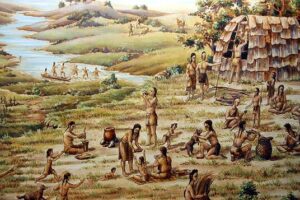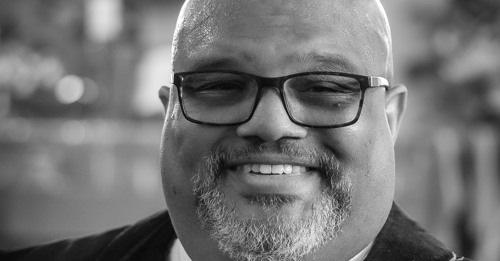The Trent House Association presents a virtual presentation by Rev. Dr. J. R. Norwood, Jr., on the history and culture of the Lenni-Lenape people and their descendants in New Jersey today.
The program will begin at 1:00 p.m. on Saturday, April 17, 2021, via Zoom at https://bit.ly/3rtFwRG. A pay-as-you-wish donation of $10 is suggested and can be made by PayPal at https://www.williamtrenthouse.org/donation.html.

The land on which the Trent House was built is part of the traditional territory of the Lenni- Lenape, called “Lenapehoking.” The Lenni-Lenape People lived in harmony with one another upon this territory for thousands of years before European colonization. During the colonial era and early federal period, many were removed west and north, but some remained among the three continuing historical tribal communities of the region: The Nanticoke Lenni-Lenape Tribal Nation; the Ramapough Lenape Nation; and the Powhatan Renape Nation. The Trent House acknowledges the Lenni-Lenape as the original people of this land and their historic and continuing relationship with their territory.
Rev. Dr. J.R. Norwood, Jr., is an ordained Christian clergyman and founding pastor of the Ujima Village Christian Church of Ewing, New Jersey. A member of the Nanticoke Lenni-Lenape Tribal Nation, he served as an elected Tribal Councilman from 2004 to 2019, is currently the first Principal Justice of the Tribal Supreme Court of the Nation, and represents the Nanticoke Lenni-Lenape in the National Congress of American Indians, where he serves as co-chairman of the Task Force on Federal Acknowledgment.
The 1719 William Trent House Museum is dedicated to sharing the authentic history of the house, property, and people with our communities, connecting the past with today and tomorrow. The Museum is owned by the City of Trenton, operated by the Trent House Association, and listed in both the State and National Registers of Historic Places. The Trent House Association is supported by the generosity of its members and donors; by grants from the New Jersey Council for the Humanities, the New Jersey Cultural Trust, the New Jersey Historic Trust, and the Mercer County Cultural and Heritage Commission with funding from the New Jersey Historical Commission; and by contributions from Canty Landscaping, FVHD Architects-Planners, Glenna Stone Interior Design, Mills & Schnoering Architects, New Pod City, NJM Insurance Group, Orion General Contractors, and StoneTech Fabrication. For more information, visit https://williamtrenthouse.org.





